

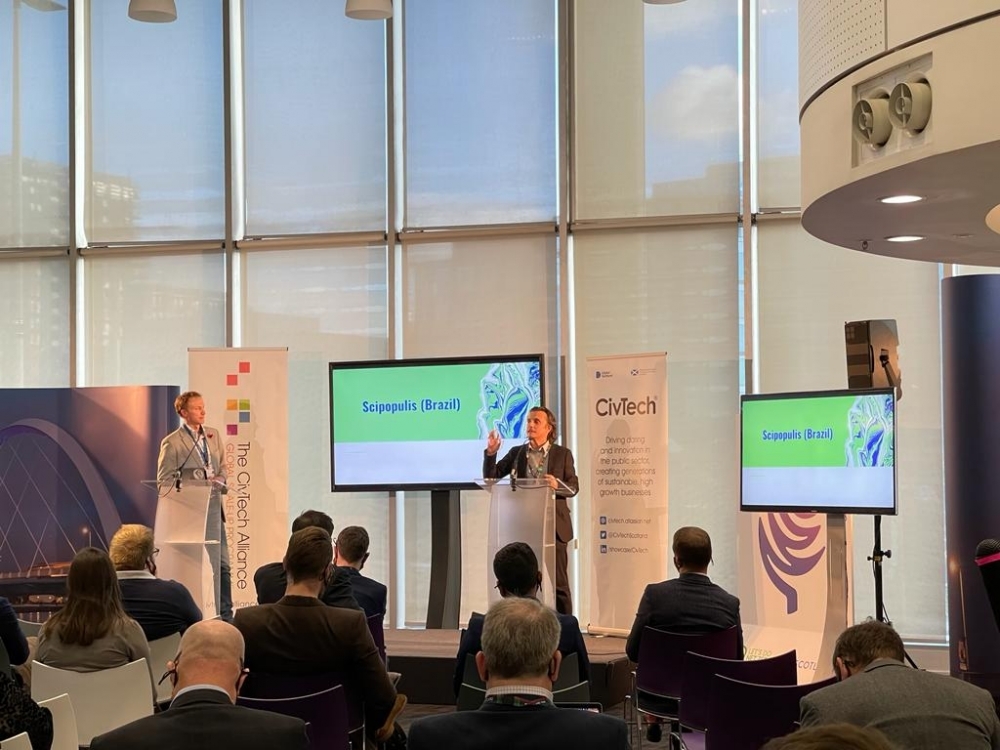
Scipopulis was one of five Brazilian startups selected to participate in a program designed to help innovative fast-growth tech firms implement solutions that mitigate the adverse effects of climate change.
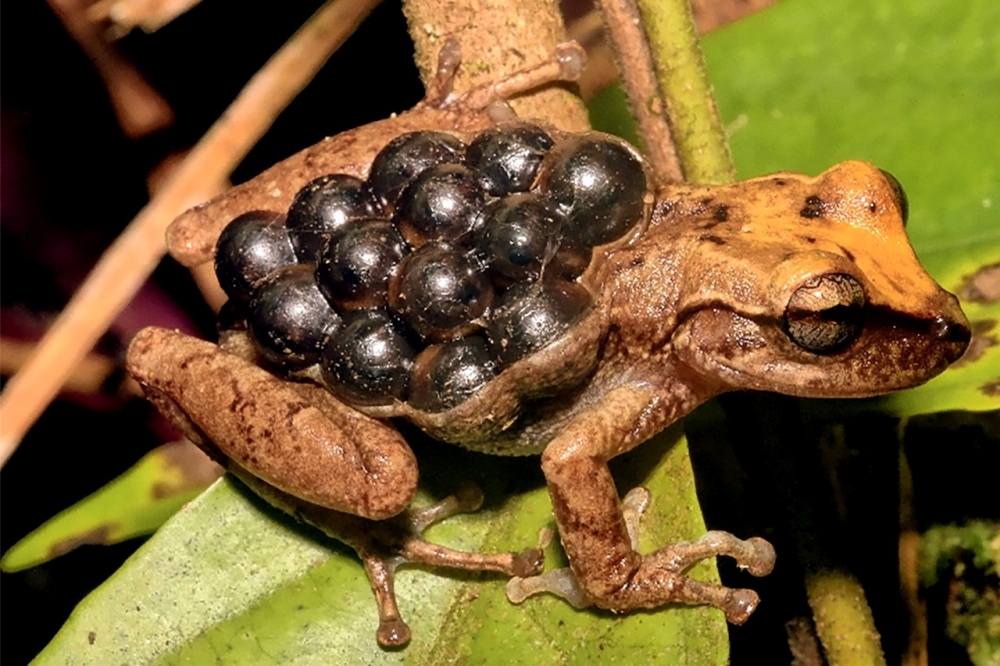
Carrying eggs on their back, laying them in bromeliads or depositing them on leaves are some of the strategies cataloged by Brazilian researchers in a study that will help scientists understand the evolution of vertebrates and contribute to conservation policy.
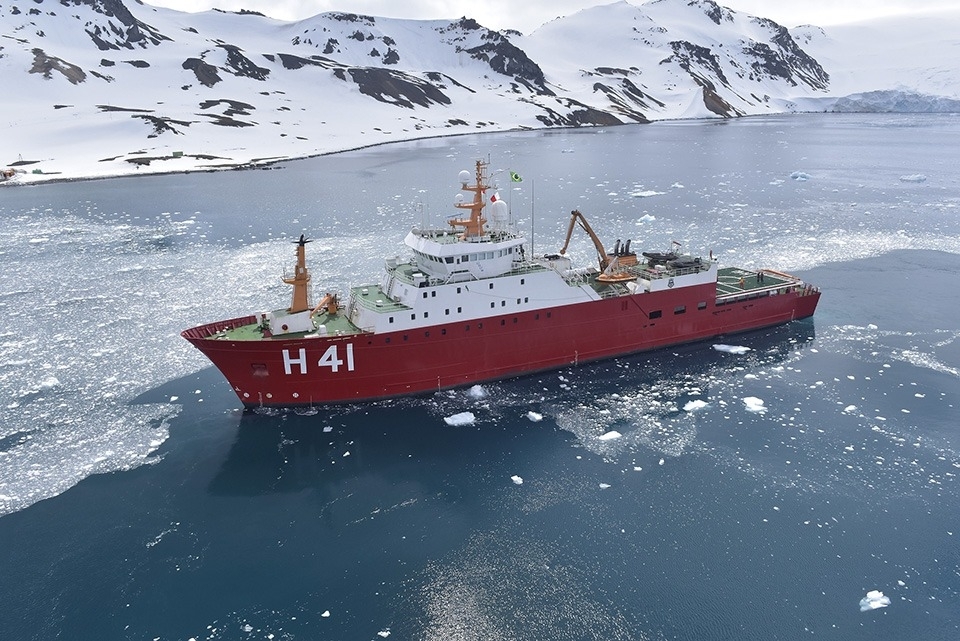
A study published in Frontiers in Marine Science is the first to predict the impact of long-term changes in sea surface temperature on local microbial diversity. The methodology is also innovative.

Particles released into the atmosphere by fire modify the water droplet freezing process and can affect precipitation, according to a paper in Communications Earth & Environment.

Torrential rain resulted in losses estimated at BRL 1.3 billion and made over 90,000 people homeless in the state, where the probability of far higher volumes of rain than expected has increased 70% owing to industrialization and global warming.
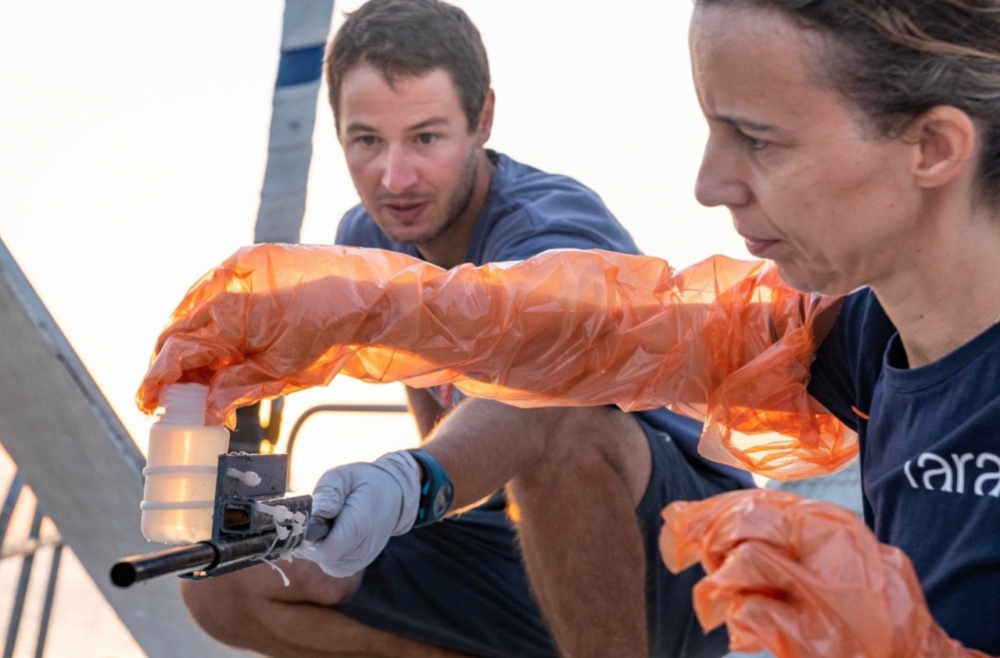
Plankton are the foundation of life in the oceans and produce half the world’s oxygen. These marine microorganisms will suffer from rising temperatures at the poles, rising salinity in the tropics, and a reduction in the flow of nutrients in the temperate zone, according to simulations based on data collected from all oceans around the globe.
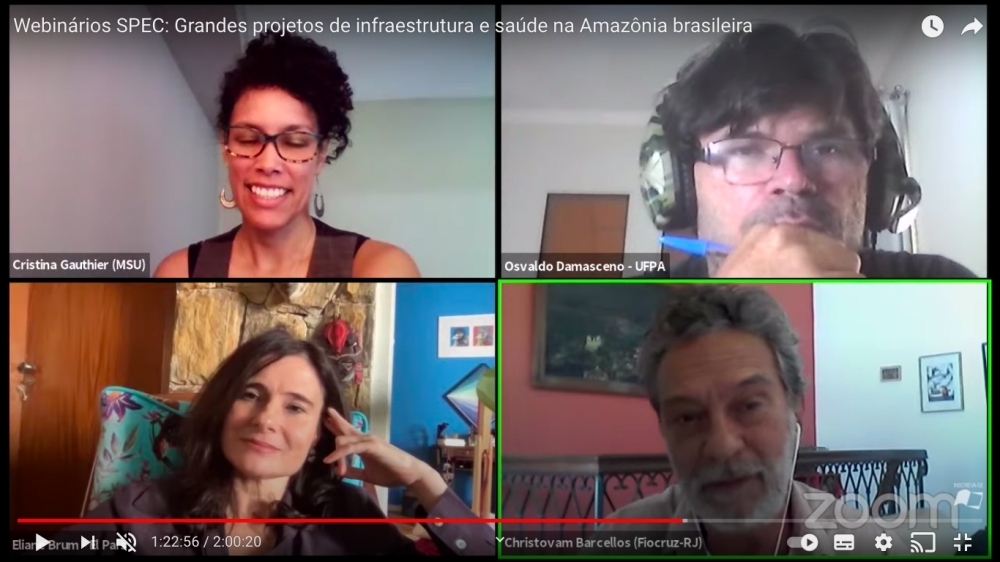
For scientists gathered at this FAPESP-hosted webinar, projects like the Belo Monte dam and the Transamazon highway have had few local benefits and led to a rise in poverty, violence, deforestation and disease.

Study led by researchers at the University of São Paulo analyzed data for the period 1991-2014 and revealed that deforestation increased in election years. The phenomenon could cancel out the environmental gains achieved by conservation policies and actions, the scientists warn.
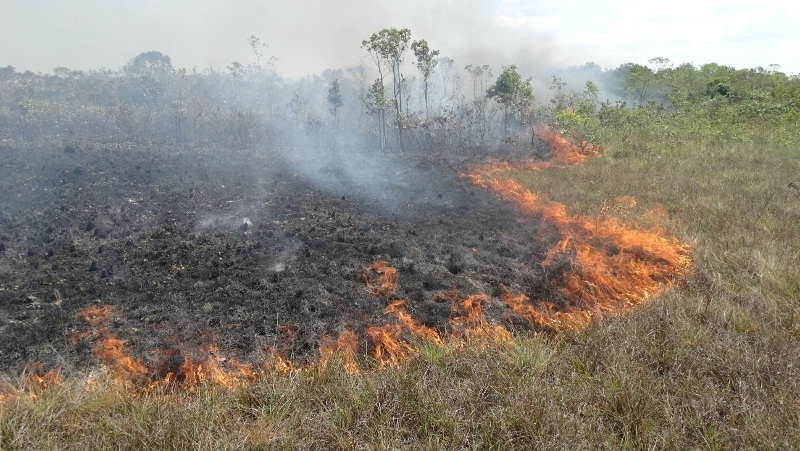
The researchers combined VOD, an indicator of the amount of water in vegetation, with remote sensing data from optical satellites. The innovative strategy described in Remote Sensing provides a more comprehensive understanding of the biomass changes caused by fire.
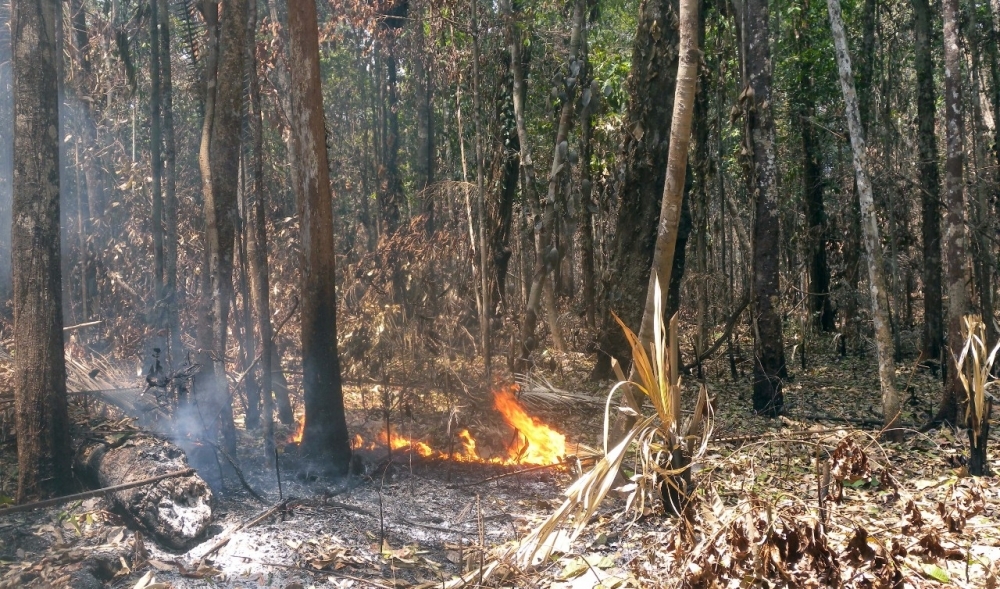
Based on data collected in the field, Brazilian researchers showed that small and medium trees suffer most in the first two years after a fire, but the overall impact on vegetation can last decades. Carbon stocks fall 12.8% in burned areas on average.

A study alerts to the conjunction between a climate change scenario and little inspection with the arrival of the dry season in the country, which favors large-scale fires – such as that which occurred in the Pantanal in 2020. To avoid further tragedies, researchers defend the implementation of a policy of integrated fire management.
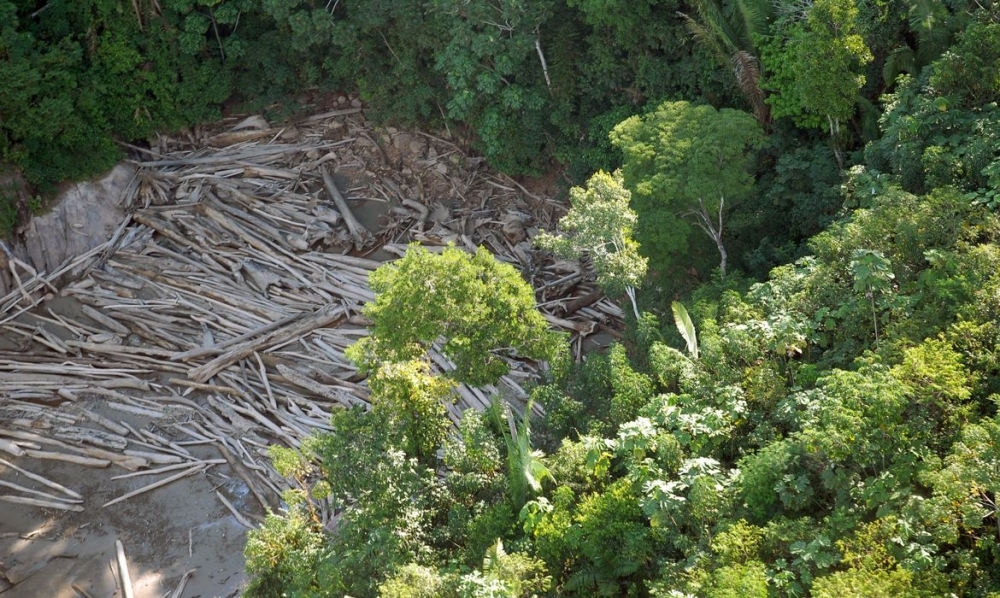
Researchers analyzed strategies for ecosystem conservation and rehabilitation of degraded areas in the second part of the FAPESP 60 Years Lectures.
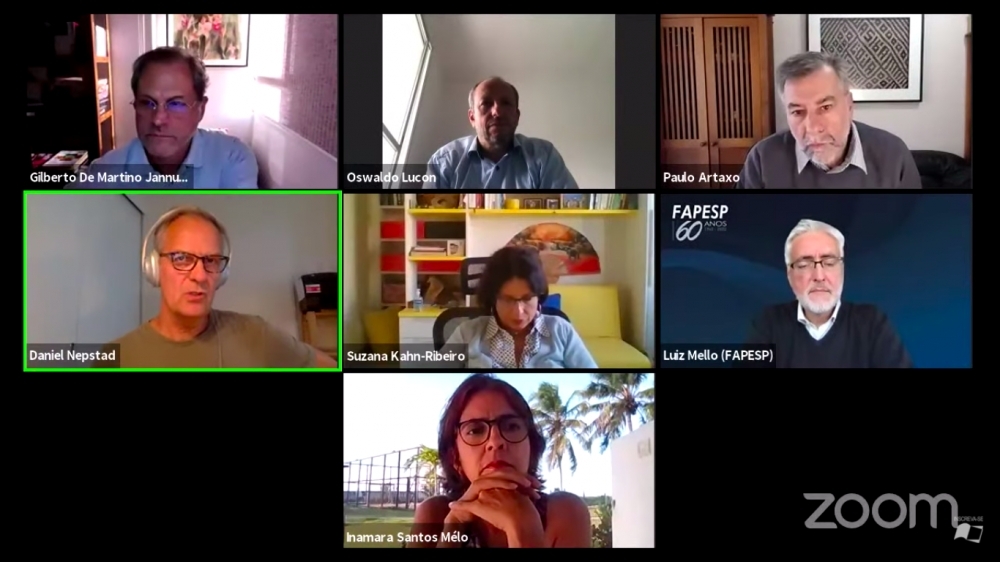
Action to reduce greenhouse gas emissions by subnational governments could help countries achieve their climate targets and contribute to the post-pandemic economic recovery, experts suggested at an event hosted by FAPESP.
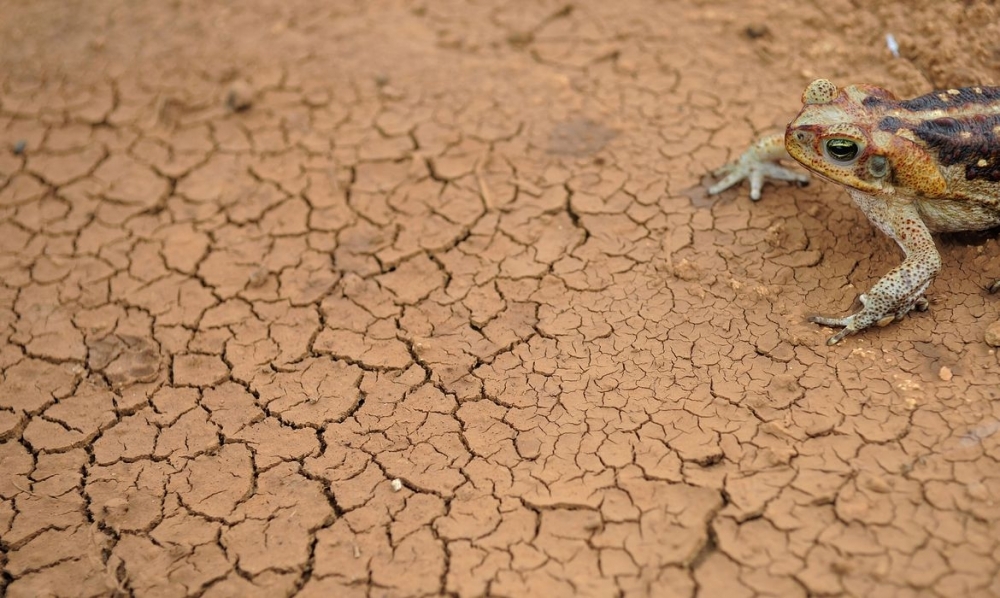
If greenhouse gas emissions continue at the current level, the average temperature will tend to rise by as much as 4 °C in some regions. Under this scenario, extreme weather events will be more intense and frequent, according to projections made using the IPCC’s new climate models.

Simulations run by Brazilian scientists on a supercomputer at the National Space Research Institute (INPE) show that the direct impact of rising levels of carbon dioxide over the Amazon rainforest would be a reduction in rainfall equivalent to or even greater than the impact of complete substitution of the forest by pasture. The result calls attention to the need for regional and global action to mitigate the adverse effects of climate change.

In the run-up to the 26th UN Climate Change Conference of the Parties (COP26), experts participating in a webinar hosted by FAPESP showed that the 2020 revision of Brazil’s nationally determined contribution failed to improve targets and allows in practice for a higher level of greenhouse gas emissions.

The phenomenon is linked to gradual contraction of the tropical rain belt over the last 5,000 years, according to a study conducted at the University of São Paulo. Its findings can help predict the region’s future climate.

Fewer Atlantic mangrove fiddler crab embryos survived in a warmer, more acid environment mimicking conditions forecast for the end of this century. Given the important ecological role of this invertebrate in mangroves, the researchers warn of a potential cascade effect.
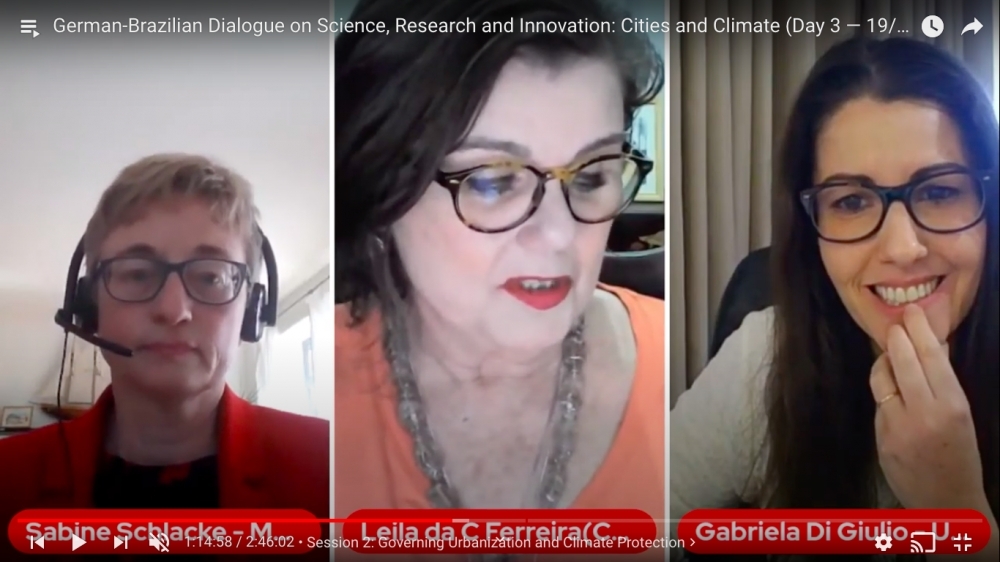
Cities located in metropolitan areas of this Brazilian state score better according to an index that measures the existence of public policies designed to adjust critical sectors to the impacts of climate change.
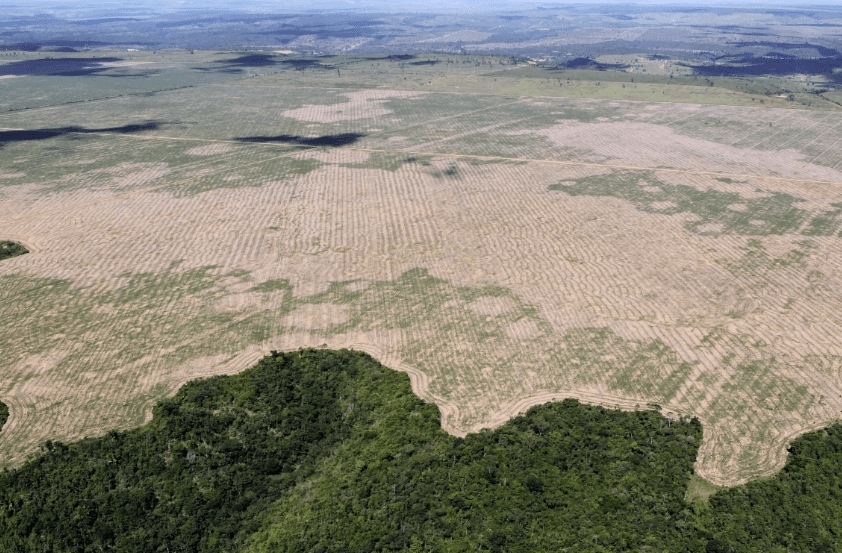
Illegal logging to clear land for cattle grazing has fueled growth in Brazil’s greenhouse gas emissions, according to participants in a webinar on the prospects for COP26 hosted by FAPESP.
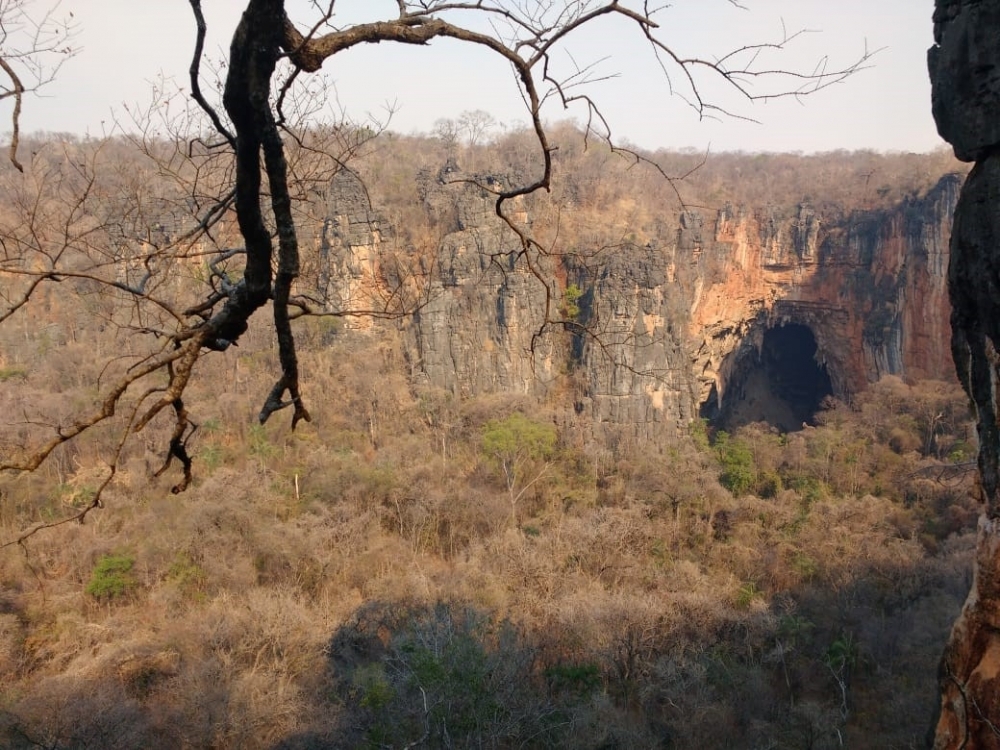
The study was conducted in a Brazilian national park and was based on analysis of tree rings in the species Amburana cearensis, as well as satellite images.
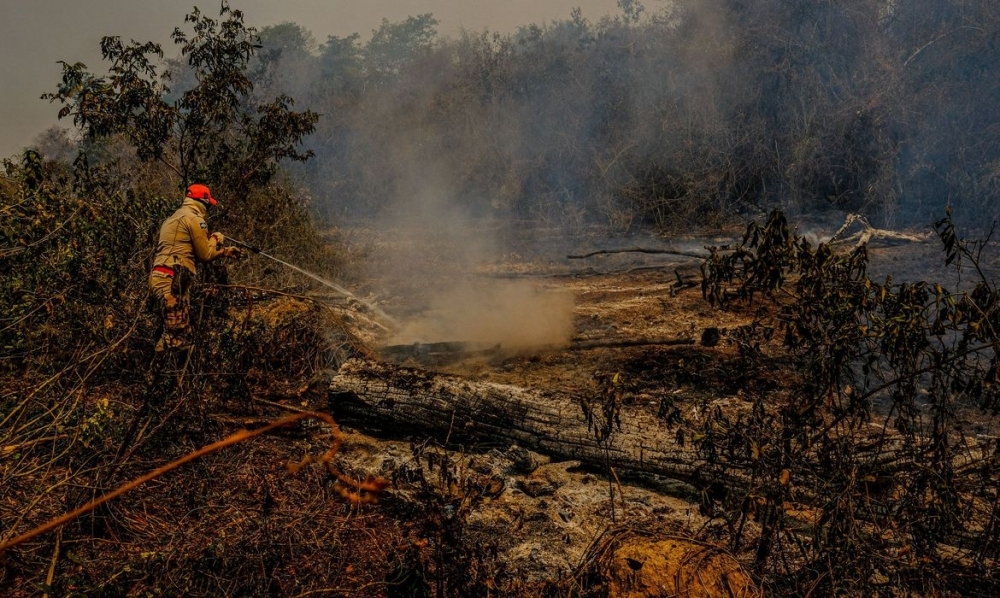
The study shows that the 2019-20 drought resulted from a natural meteorological phenomenon similar to the one that caused the 2014-16 critical water shortage in São Paulo state, Southeast Brazil.
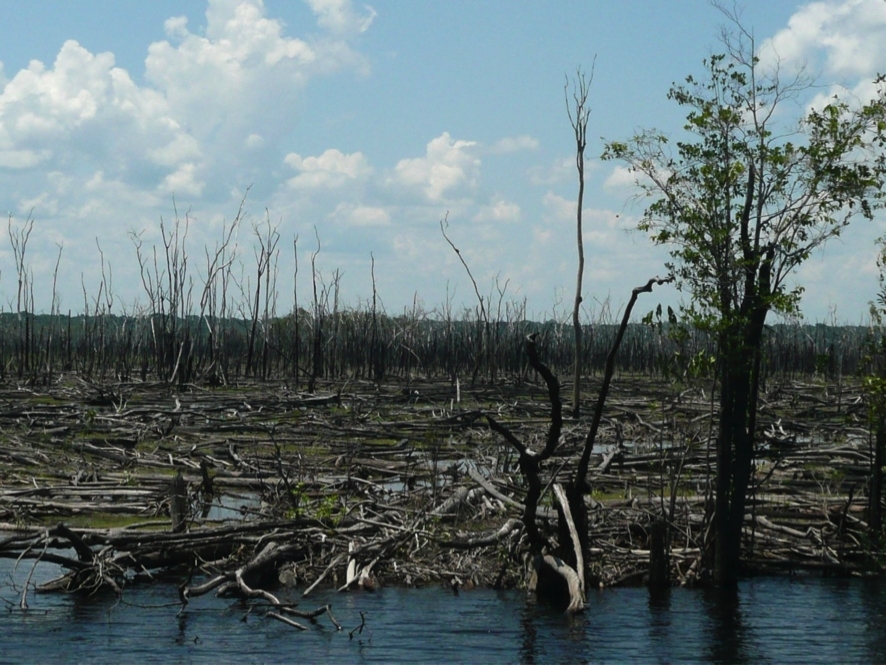
Researchers analyzed the effects of wildfires on plant cover and soil quality in the last 40 years. The findings of the study show that the forest is highly vulnerable even in well-conserved areas far from the ‘deforestation arc’.

Butterflies are considered a key biological indicator of trends in the biome. The study quantified the contributions of landscape and climate variables to current species distribution patterns.